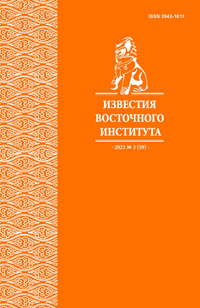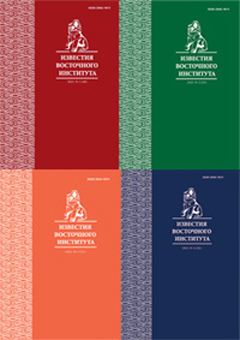Cемантика фронтирной нелояльности в приграничных районах Внутренней Азии
DOI:
https://doi.org/10.24866/2542-1611/2023-3/60-74Ключевые слова:
Забайкалье, забайкальские казаки, гражданская война, граница, лояльность, памятьАннотация
В исследованиях политической лояльности принято рассматривать проекции и манифестации лояльности как динамический процесс, открытый альтернативам и подчиненный текущей культурной и социальной ситуации. Лояльность видится как трудный выбор субъекта среди многих культурных и конфессиональных альтернатив, во многом первичный по отношению к классическим понятиям "идентичности" и "этничности". В перспективе фронтирной опасности, представленной в статье, драма нелояльности состоит не в трудности выбора, а в невозможности соответствовать заданному уровню политической и культурной лояльности. Приведенные примеры представляют проблему несмываемой вины людей, исключенных из воображаемого сообщества лояльных граждан и заключенных в территориальную ловушку политически опасной территории, непосредственно связанную с дискурсами фронтирной нелояльности. В этой перспективе проблема нелояльности нерешаема, так как каждое новое решение порождает новые подозрения.





